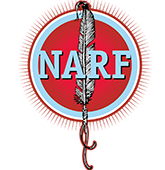Tribes are ‘decolonizing’ child welfare practices, national researchers find
A guiding principle of state and federal laws governing child abuse and neglect cases is that foster homes must be safe, comfortable and respectful in order to serve children’s “best interests.” The Agua Caliente Band of Cahuilla Indians has expanded that legal definition — requiring that children attend cultural events and learn their Native language. Read the … Read more
